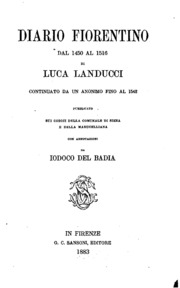Hello everyone.
It appeared to me a sentence with coniugata from a Renaissance text that I couldn't quite figure how to translate.
The sentence is the following:
Ex Italia monstri allatum depictum simulachrum Ravennae ortum, ex conjugata.
(Out of Italy, the winged painted image of the beast born in Ravenna, out of a [conjugata])
Someone suggested the translation "married woman", but couldn't it also mean "composite image" or something like that, once coniugatus is an adjective... In other words, what's the noun behind that adjective? Is it likely to be woman? It seems a little too ambigous to me, but then, maybe it's usage, I don't know. (It could be that the beast was born of a married woman (?)... Or that the picture was drawn by a married woman... Or that the picture came from a joint picture...)
Any help would be appreciated.
It appeared to me a sentence with coniugata from a Renaissance text that I couldn't quite figure how to translate.
The sentence is the following:
Ex Italia monstri allatum depictum simulachrum Ravennae ortum, ex conjugata.
(Out of Italy, the winged painted image of the beast born in Ravenna, out of a [conjugata])
Someone suggested the translation "married woman", but couldn't it also mean "composite image" or something like that, once coniugatus is an adjective... In other words, what's the noun behind that adjective? Is it likely to be woman? It seems a little too ambigous to me, but then, maybe it's usage, I don't know. (It could be that the beast was born of a married woman (?)... Or that the picture was drawn by a married woman... Or that the picture came from a joint picture...)
Any help would be appreciated.



 Agree2.gif)




 Tongue.gif)

 Then I'm lost!
Then I'm lost!